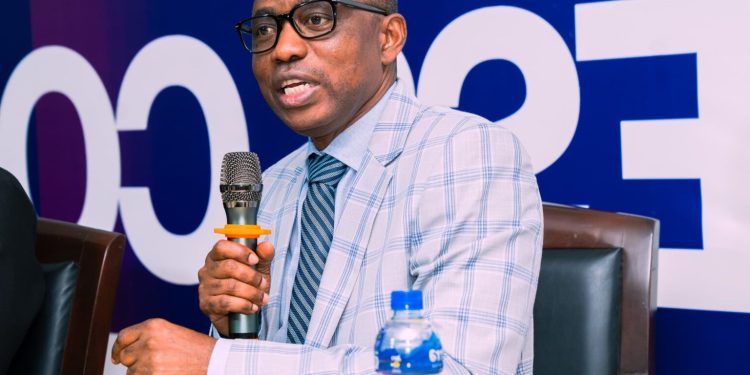By Hassan Osman Kargbo
The Commissioner and Registrar of the Sierra Leone Commission on Arms and Ammunition (SLCAA), Major General (Rtd.) Christian Fahim Marah, has outlined significant achievements in the country’s efforts to regulate and control the proliferation of small arms and ammunition.
Speaking at the government’s weekly press briefing on Tuesday, August 5, 2025, Commissioner Marah provided a comprehensive update on the Commission’s progress, and reaffirmed its commitment to ensuring responsible arms management in Sierra Leone.
He reminded journalists that the SLCAA’s core mandate is to supervise, regulate, and manage the manufacture, use, and trade of small arms and ammunition, along with related materials, a mandate that also extends to aligning Sierra Leone’s arms control systems with international treaties and regional regulations.
From Post-War Disarmament to a Modern Arms Commission
Commissioner Marah recalled that in the aftermath of Sierra Leone’s 11-year civil war, one of the most pressing concerns for both the government and international partners was the lack of a national mechanism to collect weapons from civilians, a gap that was addressed in 2010 with the establishment of the Sierra Leone National Commission on Small Arms through an Act of Parliament.
Following a review of the 2010 Act, a new law was enacted in 2012 to strengthen its operations. In 2024, Act No. 23 formally changed the institution’s name to the Sierra Leone Commission on Arms and Ammunition (SLCAA). Marah explained that the transition was aimed at aligning Sierra Leone’s legal framework with the Arms Trade Treaty and the Economic Community of West African States (ECOWAS) Convention on Small Arms and Light Weapons, to which Sierra Leone is a signatory.
Over the years, the Commission has revised its laws to meet modern international standards, while also formulating a national work plan to guide its operations until 2029.
Destroying Thousands of Weapons
One of the most notable achievements highlighted by the Commissioner was the large-scale destruction of weapons. In 2025 alone, the SLCAA successfully destroyed 3,900 unserviceable weapons. This follows the earlier destruction of 8,500 weapons in previous years. While some of the destroyed arms were still functional, the decision to dismantle them was taken to significantly reduce the number of individuals in possession of firearms.
“This exercise is not just about destroying weapons,” Marah said. “It’s about enhancing the safety and security of our communities and ensuring that arms do not fall into the wrong hands.”
Building Capacity for Tracing and Accountability
Commissioner Marah also announced that between July 21 and 25, 2025, the SLCAA completed a nationwide weapons-marking training programme aimed at improving the country’s capacity to trace arms used in criminal activities. The weapons-marking system — designed to assign unique, trackable identifiers to each firearm — has already been implemented in every region of the country except the Western Area, where rollout is expected soon.
“This marking system is critical for tracing the origins of firearms, identifying illicit trafficking routes, and supporting law enforcement in criminal investigations,” Marah noted.
Strengthening Oversight Through Licensing
The SLCAA has also strengthened its oversight by issuing more than 1,000 firearm licences to private individuals. This process ensures that legal ownership is properly documented and monitored, reducing the likelihood of weapons being misused.
“Licensing is not just an administrative exercise; it is a critical component of our national security strategy,” the Commissioner explained. “It helps us maintain accurate records, track the movement of firearms, and hold owners accountable.”
Commitment to International Standards
Commissioner Marah reaffirmed that the SLCAA will continue to work closely with international partners, including the United Nations and ECOWAS, to ensure Sierra Leone remains compliant with global arms control obligations. The Commission’s forward-looking work plan includes expanding the weapons-marking initiative, enhancing border controls to combat arms smuggling, and intensifying public awareness campaigns about responsible firearm ownership.
“The progress we have made is the result of strong political will, effective collaboration with stakeholders, and the commitment of our personnel,” Marah concluded. “But the work is far from over. We will continue to strive for a safer Sierra Leone free from the threats posed by the proliferation of small arms.”
SLCAA’s latest achievements underscore the country’s ongoing commitment to post-war stability and the rule of law, as it works to prevent a return to the insecurity of the past.










